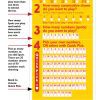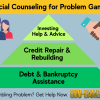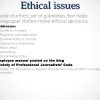“What is responsible gambling education? Let’s dive into this important topic and discover why it’s crucial for both kids and adults to learn about responsible gambling. So, you may be wondering, what exactly is responsible gambling education all about?”
“Well, responsible gambling education is all about promoting healthy and informed choices when it comes to gambling. It’s like having a guide or a set of rules to help us make smart decisions and protect ourselves when we engage in any form of gambling.”
“By understanding responsible gambling, we can learn how to enjoy the excitement of gambling while minimizing the risks and avoiding negative consequences. So, let’s explore this fascinating subject further and discover the key elements of responsible gambling education!”

What is Responsible Gambling Education?
Responsible gambling education is a vital component of promoting safe and healthy gambling practices. It aims to educate individuals about the potential risks and negative consequences associated with gambling. This form of education provides information and tools to help individuals make informed decisions, set limits, and maintain control over their gambling activities. By increasing awareness of the potential harms and promoting responsible gambling behavior, responsible gambling education plays a crucial role in minimizing the impact of gambling-related issues in society.
Why is Responsible Gambling Education Important?
Responsible gambling education is important because it empowers individuals with the knowledge and skills needed to make responsible choices when engaging in gambling activities. It raises awareness about the risks of problem gambling, such as financial difficulties, relationship problems, and mental health issues. By promoting responsible gambling behavior, it aims to reduce the incidence of gambling-related harm and foster a safer gambling environment for individuals and their communities.
The Role of Education in Preventing Problem Gambling
One of the key objectives of responsible gambling education is to prevent problem gambling. By providing individuals with information about the signs of problem gambling and the resources available for help, education plays a crucial role in early intervention and support. It equips individuals with the knowledge to recognize the warning signs of a gambling problem in themselves or others and helps them seek assistance before the issue escalates. Responsible gambling education also raises awareness about the importance of setting spending limits, managing time and emotions while gambling, and making informed decisions to prevent the development of problem gambling habits.
Additionally, responsible gambling education aims to debunk common gambling myths and misconceptions, such as the belief in betting systems or strategies that guarantee winnings. It educates individuals about the nature of random chance and the importance of maintaining realistic expectations while gambling. By dispelling these myths, responsible gambling education encourages individuals to approach gambling as a form of entertainment rather than a means of making money, reducing the potential for excessive and risky gambling behaviors.
Developing Responsible Gambling Habits through Education
Responsible gambling education focuses on equipping individuals with the tools and knowledge necessary to develop responsible gambling habits. It emphasizes the importance of setting personal limits on spending, time, and frequency of gambling activities. By fostering self-control and discipline, education helps individuals establish healthy boundaries and maintain balance in their gambling behaviors.
Furthermore, responsible gambling education highlights the significance of understanding the odds and probabilities associated with different gambling activities. It encourages individuals to make informed decisions based on realistic expectations rather than relying on luck or superstition. By promoting sound decision-making skills, responsible gambling education helps individuals make choices that align with their personal values and financial capabilities, reducing the likelihood of impulsive and reckless gambling behaviors.
In conclusion, responsible gambling education plays a crucial role in promoting safe and healthy gambling practices. By raising awareness about the potential risks of problem gambling and equipping individuals with the knowledge and tools to make responsible choices, education helps prevent problem gambling and fosters a safer gambling environment. It empowers individuals to develop responsible gambling habits and maintain control over their gambling activities. Through responsible gambling education, we can create a society where gambling can be enjoyed as a recreational activity without causing harm to individuals and their communities.
Key Takeaways: What is responsible gambling education?
- Responsible gambling education is a program designed to educate individuals about safe gambling practices.
- It aims to promote responsible behavior and prevent gambling-related harm.
- The program teaches individuals about the potential risks of gambling and how to make informed decisions.
- Responsible gambling education emphasizes the importance of setting limits and sticking to them.
- It also encourages individuals to seek help if gambling becomes problematic.
Frequently Asked Questions
In this section, we will answer some of the common questions related to responsible gambling education.
What is the purpose of responsible gambling education?
Responsible gambling education is designed to promote safe and responsible gambling practices. Its purpose is to provide individuals with the knowledge and skills to make informed decisions about their gambling behavior, while minimizing the potential negative consequences associated with gambling.
By educating individuals about the risks and potential harms of gambling, responsible gambling education aims to prevent problem gambling, reduce the prevalence of gambling-related issues, and ensure a safer gambling environment for everyone.
Who can benefit from responsible gambling education?
Responsible gambling education is beneficial for a wide range of individuals, including gamblers, their families, friends, and even the broader community. It is particularly important for individuals who are at risk of developing gambling problems, as well as those who are already experiencing gambling-related difficulties.
By raising awareness and providing information about responsible gambling practices, this education can empower individuals to make informed decisions and protect themselves and their loved ones from the potential negative consequences of gambling.
What are the key components of responsible gambling education?
Responsible gambling education typically covers a variety of key components, including understanding the risks and potential harms of gambling, recognizing the signs of problem gambling, developing strategies for responsible gambling, understanding the odds and probabilities in gambling activities, and knowing where to seek help and support for gambling-related issues.
It often includes interactive activities, informative resources, and practical tools to help individuals gain a comprehensive understanding of responsible gambling and develop the necessary skills to make better gambling choices.
How can responsible gambling education be delivered?
Responsible gambling education can be delivered through various channels and formats, including educational workshops, online courses, informative websites, mobile applications, pamphlets, and other printed materials. It can also be integrated into existing programs or initiatives that address mental health, addiction, or community well-being.
The goal is to ensure that responsible gambling education is accessible and available to diverse populations, including different age groups, cultural backgrounds, and socioeconomic statuses.
Are there any effective strategies for promoting responsible gambling education?
There are several effective strategies for promoting responsible gambling education, such as partnerships between gambling operators and educational institutions, collaboration between gambling regulators and community organizations, public awareness campaigns, and the integration of responsible gambling education into school curricula or workplace programs.
Moreover, incorporating personal stories and testimonials from individuals who have experienced the negative impacts of gambling can enhance the effectiveness of educational initiatives, as they provide real-life examples that resonate with the audience and highlight the importance of responsible gambling practices.
What is Responsible Gambling?
Summary
Gambling can be fun, but it’s important to learn about responsible gambling education to stay safe. Responsible gambling education teaches us how to gamble responsibly and understand the risks involved. It helps us develop the skills to make informed decisions and set limits on our gambling activities.
Responsible gambling education also teaches us about the signs of problem gambling and how to seek help if we need it. By promoting responsible gambling, we can enjoy the excitement of gambling while minimizing the potential harm it can cause. So remember, when it comes to gambling, knowledge is power!









